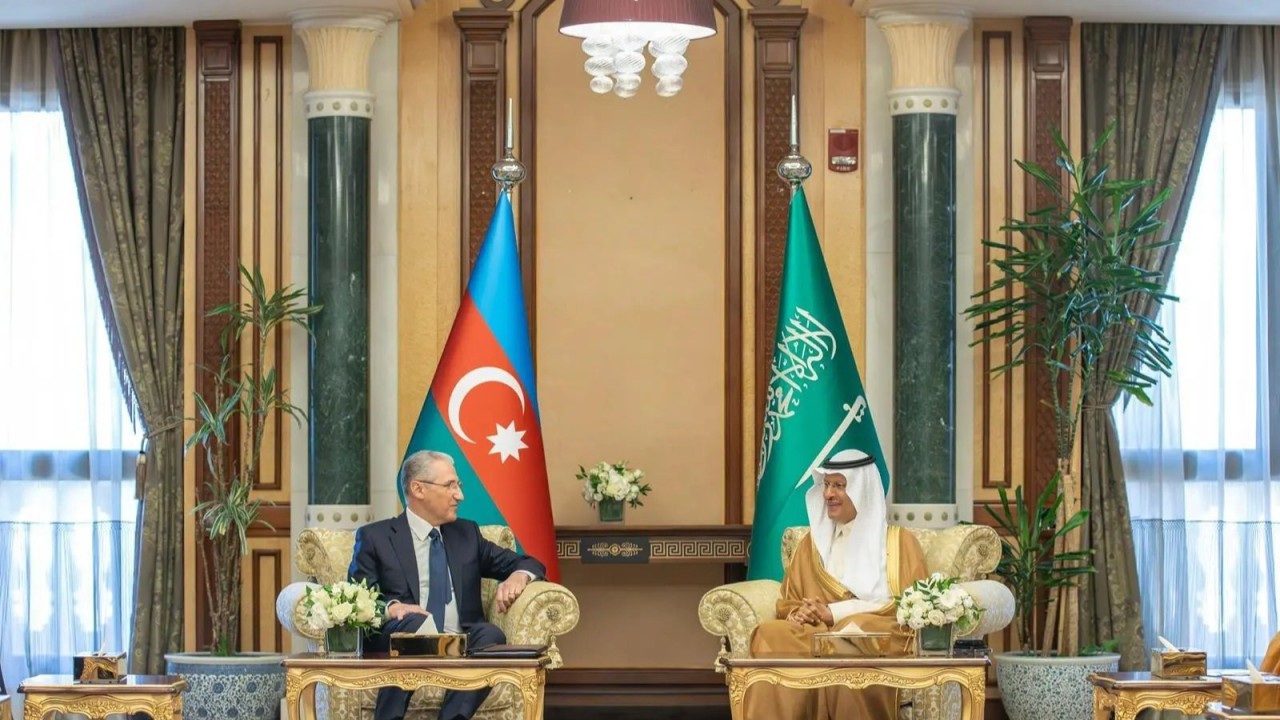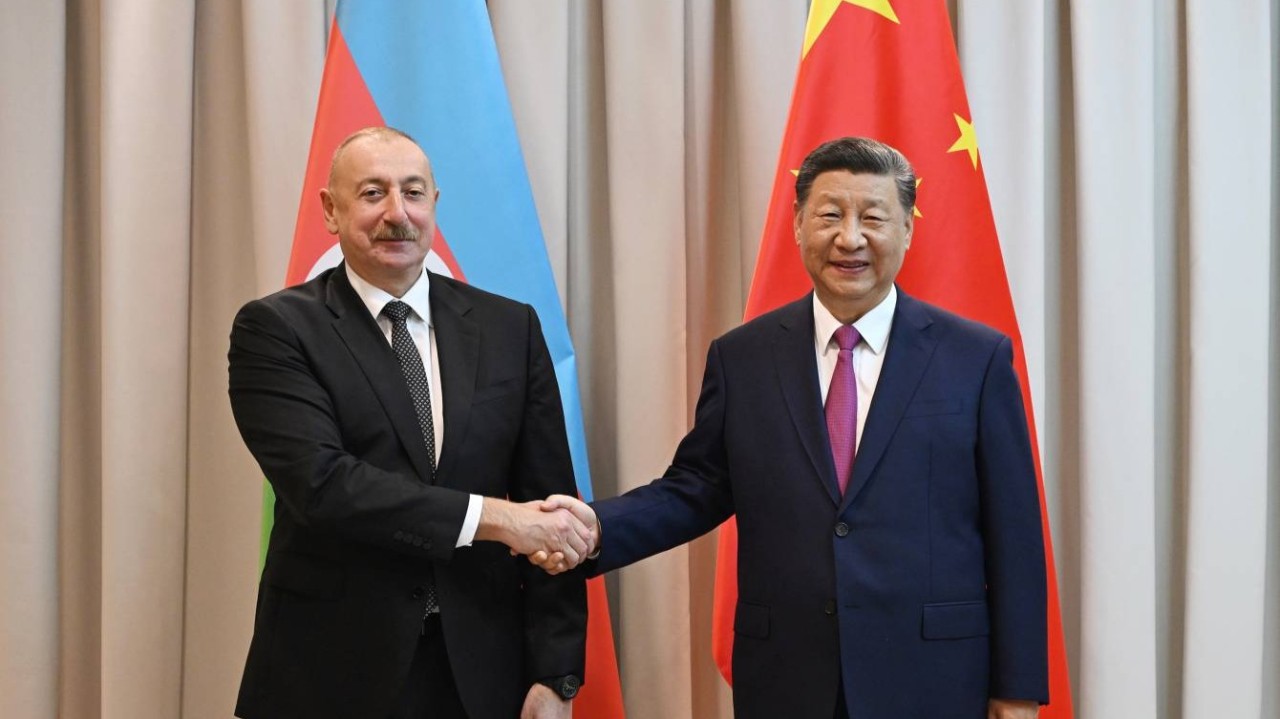This week’s Azerbaijan Brief examines Baku’s evolving ties with Russia’s Dagestan region.
Dagestan — a mosaic of ethnic diversity — straddles the Russian-Azerbaijan border. In recent years, Baku has amassed considerable influence in the region, particularly its southern environs. The region’s sizable Azeri community serves as a key lever of influence. And Baku is expanding its footprint across its neighbor’s manufacturing, agricultural and transportation sectors.
As part of Azerbaijan’s special relationship with Moscow, Baku plays a role in helping manage the restive, Muslim-majority North Caucasus region. For decades, armed groups in Dagestan waged insurgencies — of varying intensities — against Russian authorities. (Since the 1990s, the Kremlin has also fought two wars to quell separatism in nearby Chechnya.) Its role as a proxy — among other factors — has enabled Baku to expand its strategic value vis-à-vis the Kremlin.
Baku exercises particular influence over the seaside city of Derbent. The town hosts a significant Azerbaijani community (35 percent of locals), concentrated in the old city. And community members occupy key municipal posts. Derbent’s politics were long dominated by the ethnic Azeri Qurbanov clan, which maintains intimate, Soviet-era ties to the Aliyev family. Over the last decade, amid political squabbles, the clan’s power has dissipated.
Azerbaijan also sustains its local influence via a broad network of clients (i.e., businessmen, political figures and community organizers.) In particular, Baku leverages the networks of Dagestan-born, Azerbaijan-based business elites, such as Efendi Ismiyev. (A fixture in Azeri business circles, Ismiyev runs construction giant EVRASCON, which oversaw the Baku-Ceyhan pipeline project.)
For over a decade, Azerbaijan’s clout in Dagestan has provoked public ire — and stirred ethnic tensions. Critics bemoan growing political interference — and Azerbaijan’s siphoning of local water resources. (Dagestan’s Samur River provides drinking water to Baku and Sumgait.) Chief among these grievances is Moscow’s transfer of two Russian exclaves to Azerbaijan as part of a 2010 border treaty. These striking territorial concessions — a signal of Russia’s special relationship with Azerbaijan — rattled nerves across Russian political circles. The deal also dislodged the villages’ predominantly Lezgin inhabitants. (Several hundred inhabitants abandoned their homes and relocated to Dagestan amid sustained pressure by Azeri authorities.)
What we are watching
Transportation corridor. Dagestan is a critical node in Russia-Azerbaijan-Iran infrastructure networks. (Russia is dashing to build out alternative logistics channels – beyond the reach of the West – to expand trade flows and skirt sanctions.)
The North Caucasus region hosts a leg of the International North-South Transport Corridor (INSTC), a new trade route connecting Russia to the Indian Ocean. The corridor, while serving to facilitate Russian access to Asian markets, will also establish a secure channel between Moscow and Tehran, global pariahs turned security partners. As part of the INSTC initiative, Russia pledged to invest in the construction of a railway connecting Iran to the Azeri-Iranian border town of Astara.
Cross-border repression. Azerbaijan has increasingly abused its regional influence — and cozy relationship with the Kremlin — to curtail the cross-border activities of ethnic minorities (i.e., Lezgins). (Moscow — acceding to Azeri demands — routinely dispatches minority activists to Baku.)
Over the last decade, Dagestan’s Lezgin movement has sustained major blows — namely the assassination of community leaders Nazim Gadjiev and Ruslan Magomedragimov. The latter opposed Azerbaijan’s growing clout in Derbend — and its siphoning of local water resources. (A Bellingcat investigation attributed Magomedragimov’s murder to Russia’s security services.)
In recent years, Baku’s has escalated its domestic campaign against minority activism. A handful of Talysh intellectuals remain imprisoned. And late last month, Igbal Abilov, a Talysh researcher, was jailed on thinly-evidenced treason charges.
Resettlement scheme. Azerbaijan has struggled to accelerate the resettlement of occupied Artsakh, the so-called “Great Return.” Since 2022, Baku has distributed 2,000 former internally displaced persons (IDPs) across two cities and three villages. The official aim is to relocate approximately 40,000 individuals by 2026.
According to reports, Azerbaijan is recruiting settlers from further afield (i.e., Dagestan and Kvemo Kartli, Georgia). And ISA’s sources indicate that Baku has recently relocated a thousand settlers from Dagestan to Nagorno-Karabakh.
Why the world should care
Azerbaijan’s role as a regional proxy for Russian interests is expanding the Kremlin’s economic resilience and capacity to sustain influence across its borderlands, with consequences for the South Caucasus — and Ukraine.



